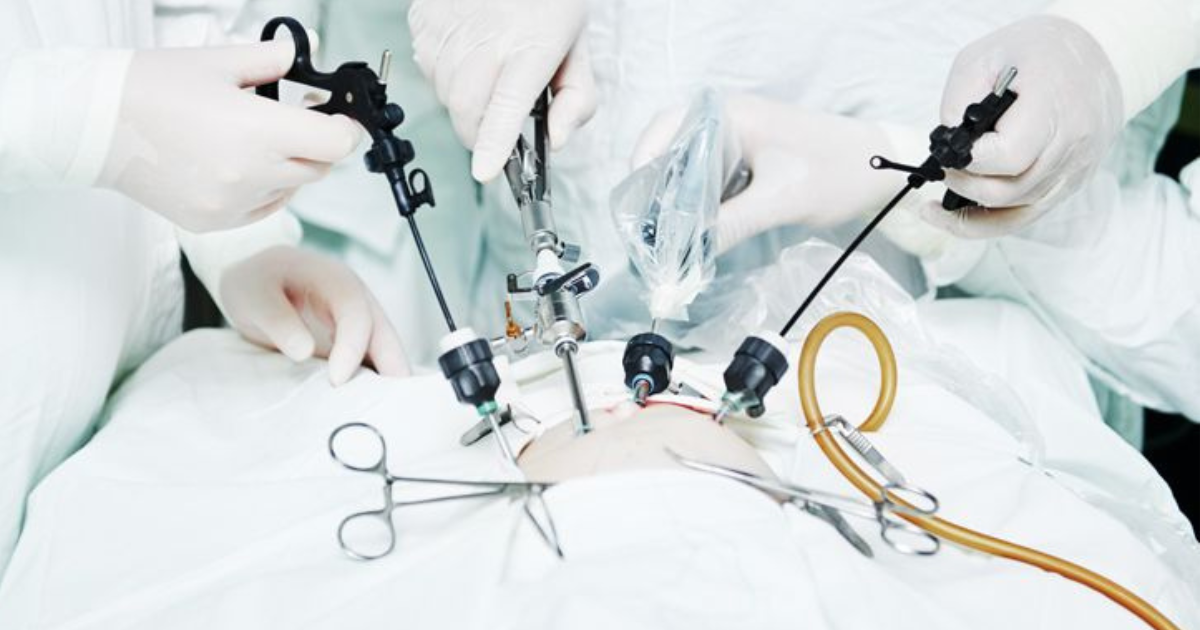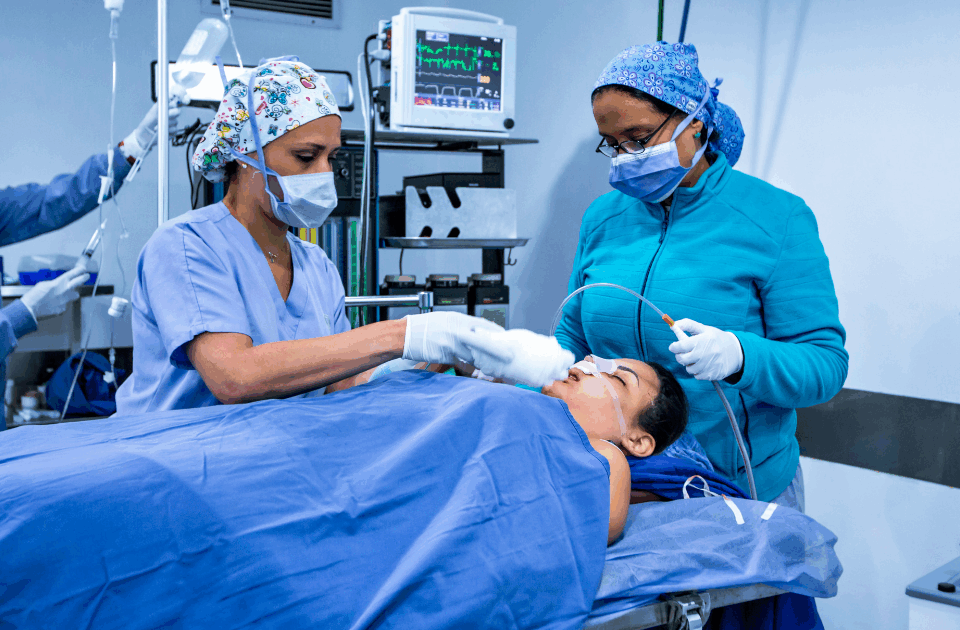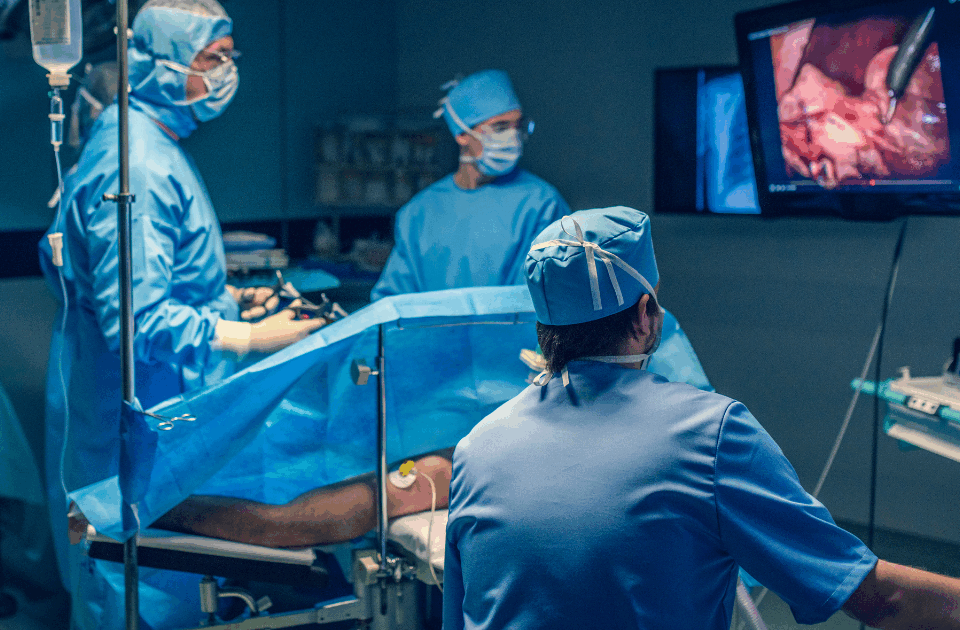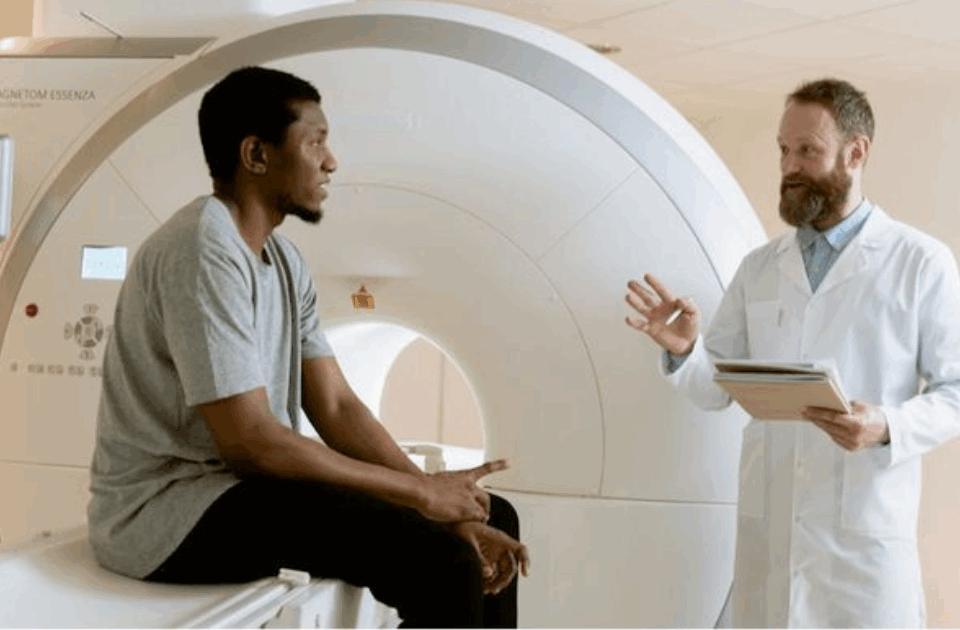
How to Interpret Your Diagnostic Test Results at Novocare Hospital
September 12, 2025
How Novocare’s Modular Operation Theaters Ensure Safe and Efficient Surgeries
September 12, 2025- advanced surgical techniques
- appendectomy
- fast recovery surgery
- gallbladder surgery
- hernia repair
- laparoscopic procedure benefits
- minimally invasive healthcare
- minimally invasive surgery
- modern surgery
- Novocare hospital
- Novocare laparoscopic surgery
- Novocare surgical care
- patient-centered surgery
- surgical innovation
Introduction
Surgery has traditionally been associated with long hospital stays, large scars, and prolonged recovery times. However, advancements in medical technology have revolutionized surgical care. Laparoscopic surgery, also known as minimally invasive surgery, is at the forefront of this transformation.
Novocare Hospital offers a wide range of laparoscopic procedures performed by highly skilled surgeons using state-of-the-art equipment, ensuring patients experience less pain, faster recovery, and improved outcomes.
This comprehensive guide explains the types of laparoscopic surgeries at Novocare, their benefits, procedures, preparation, recovery, and why these surgeries represent a major advancement in modern healthcare.
1. What is Laparoscopic Surgery?
Laparoscopic surgery is a minimally invasive technique in which surgeons operate through small incisions using specialized instruments and a camera called a laparoscope.
Key Features:
- Small incisions (usually 0.5–1.5 cm)
- Use of a high-definition camera to view internal organs
- Specialized surgical instruments inserted through ports
- Surgeons operate while viewing a monitor
Difference from Open Surgery:
| Feature | Open Surgery | Laparoscopic Surgery |
|---|---|---|
| Incision Size | Large (10–20 cm) | Small (0.5–1.5 cm) |
| Recovery Time | Weeks | Days to 1–2 weeks |
| Pain & Scarring | Significant | Minimal |
| Hospital Stay | Longer | Shorter |
| Risk of Infection | Higher | Lower |
| Return to Daily Activities | Slower | Faster |
2. Types of Laparoscopic Surgeries at Novocare
Novocare Hospital provides comprehensive laparoscopic surgical care, covering general surgery, gynecology, urology, and bariatric procedures.
2.1 Gallbladder Surgery (Cholecystectomy)
Purpose: Removal of the gallbladder due to gallstones, inflammation, or infection.
Benefits:
- Small incisions reduce scarring
- Less postoperative pain
- Shorter hospital stay (1–2 days)
- Quicker return to normal diet and activities
Procedure:
- General anesthesia is administered.
- Small incisions are made in the abdomen.
- A laparoscope is inserted for visualization.
- Gallbladder is detached and removed through one of the small incisions.
- Incisions are closed with minimal suturing.
2.2 Hernia Repair (Inguinal, Umbilical, Ventral)
Purpose: Repair of hernias using laparoscopic mesh placement.
Benefits:
- Smaller wounds, less pain
- Reduced risk of recurrence
- Faster recovery and return to work
- Low risk of infection
Procedure:
- General anesthesia or regional anesthesia is administered.
- Small incisions are made near the hernia site.
- Laparoscope guides mesh placement to reinforce the abdominal wall.
- Incisions are closed with minimal sutures.
2.3 Appendectomy
Purpose: Removal of an inflamed appendix (appendicitis).
Benefits:
- Minimally invasive, faster healing
- Reduced pain compared to open appendectomy
- Short hospital stay
- Minimal scarring
Procedure:
- General anesthesia is administered.
- Three small incisions are made in the abdomen.
- Laparoscope is used to locate and remove the appendix.
- Incisions are closed with absorbable sutures.
2.4 Bariatric Surgery (Weight Loss Surgery)
Purpose: Laparoscopic procedures like gastric bypass or sleeve gastrectomy for obesity management.
Benefits:
- Smaller incisions reduce infection risk
- Faster recovery and mobility
- Shorter hospital stay
- Long-term weight loss and improved metabolic health
Procedure:
- General anesthesia is administered.
- Laparoscopic ports are placed in the abdomen.
- Stomach size is reduced or bypassed according to the procedure.
- Small incisions are closed with sutures or adhesive strips.
2.5 Gynecological Laparoscopy
Purpose: Diagnosis and treatment of conditions like endometriosis, ovarian cysts, fibroids, and infertility.
Benefits:
- Less post-operative pain
- Quick recovery for reproductive health
- Shorter hospital stay
- Preserves fertility in many cases
Procedure:
- General anesthesia is administered.
- Laparoscope is inserted through a small incision near the navel.
- Surgeon examines and treats the affected organs.
- Incisions are closed with minimal sutures.
2.6 Urological Laparoscopy
Purpose: Treat kidney stones, remove tumors, or perform reconstructive surgery.
Benefits:
- Less pain and blood loss
- Faster recovery and mobility
- Lower risk of complications
- Precise treatment with advanced imaging
Procedure:
- Patient is under general anesthesia.
- Small incisions allow insertion of the laparoscope and instruments.
- Targeted surgery is performed under video guidance.
- Incisions are closed, and recovery begins promptly.
3. Benefits of Laparoscopic Surgery at Novocare
- Minimal Pain and Scarring: Small incisions lead to less tissue trauma.
- Faster Recovery: Most patients return to daily activities within days.
- Short Hospital Stay: Many procedures are done on an outpatient or 1–2 day basis.
- Lower Risk of Infection: Smaller wounds reduce exposure to bacteria.
- Precision Surgery: High-definition imaging allows surgeons to operate with maximum accuracy.
- Early Return to Work and Fitness: Patients resume routine life faster.
Table: Comparison of Benefits
| Feature | Open Surgery | Laparoscopic Surgery |
|---|---|---|
| Pain Level | High | Low |
| Recovery Time | Weeks | Days to 1–2 weeks |
| Hospital Stay | Longer | Short |
| Infection Risk | Higher | Lower |
| Scarring | Significant | Minimal |
| Postoperative Care | Intensive | Simple |
4. Preparing for Laparoscopic Surgery
Proper preparation ensures successful outcomes and reduces complications:
- Medical Evaluation: Blood tests, ECG, imaging studies.
- Medication Management: Disclose all medications, including supplements and anticoagulants.
- Fasting: Typically required 8–12 hours before surgery.
- Bowel Preparation: May be required for abdominal procedures.
- Consent and Education: Patients are briefed about procedure, risks, and recovery.
Tip: Following pre-surgery instructions ensures safety and faster recovery.
5. The Surgical Procedure: Step by Step
- Anesthesia Administration: General anesthesia ensures patient comfort.
- Incision & Port Placement: Small incisions are made for instruments and laparoscope.
- Inflation of Abdomen: Carbon dioxide is used to create space for visualization.
- Surgery under Video Guidance: Surgeon performs the procedure with precision.
- Closure: Incisions are sutured or glued; dressing is applied.
- Recovery Monitoring: Patient is observed for vital signs and pain management.
6. Postoperative Care and Recovery
- Pain Management: Mild pain controlled with medications.
- Wound Care: Keep incisions clean and dry; avoid strenuous activity.
- Diet: Start with liquids, progress to normal diet as tolerated.
- Follow-Up: Novocare schedules post-op checkups to monitor healing.
- Return to Work: Most patients resume daily activities within 1–2 weeks.
Tip: Adhering to post-op instructions ensures complication-free recovery.
7. Risks and Safety Measures
Though laparoscopic surgery is safer than open surgery, some risks exist:
- Infection at incision sites
- Bleeding or hematoma
- Organ injury (rare)
- Complications from anesthesia
Safety Measures at Novocare:
- Preoperative evaluation by experienced surgeons
- State-of-the-art equipment
- Strict sterilization protocols
- Real-time monitoring of vital signs during surgery
- Postoperative care and rapid response for complications
8. Frequently Asked Questions (FAQs)
Q1: How long will I stay in the hospital?
A1: Usually 1–2 days; some procedures may be outpatient.
Q2: Is laparoscopic surgery painful?
A2: Pain is mild compared to open surgery and is managed with medications.
Q3: How soon can I return to work?
A3: Most patients return within 1–2 weeks depending on procedure and physical activity.
Q4: Will I have large scars?
A4: No, incisions are small and minimally visible.
Q5: Are laparoscopic surgeries safe?
A5: Yes. Novocare ensures experienced surgeons, advanced equipment, and strict safety protocols.
Q6: Can all surgeries be done laparoscopically?
A6: Most abdominal, gynecological, and urological surgeries are suitable. Some complex cases may require open surgery.
Q7: What is the cost of laparoscopic surgery at Novocare?
A7: Costs vary based on procedure; Novocare provides transparent billing and insurance support.
Q8: Can children undergo laparoscopic surgery?
A8: Yes. Pediatric laparoscopic surgeries are safely performed by trained surgeons.
Q9: How long is recovery for bariatric surgery?
A9: Initial recovery is 1–2 weeks, with full adaptation over 1–3 months.
Q10: Do I need post-surgery physiotherapy?
A10: Light activity is encouraged; specialized physiotherapy may be recommended for certain procedures.
9. Patient Success Stories
Case 1: A 45-year-old man underwent laparoscopic cholecystectomy. Minimal pain, discharged the next day, and returned to work within a week.
Case 2: A 35-year-old woman had laparoscopic hysterectomy for fibroids. Smooth recovery, minimal scarring, and resumed normal activities in 10 days.
Case 3: Bariatric surgery for a 50-year-old patient led to significant weight loss, improved diabetes management, and enhanced mobility, with minimal hospitalization.
These examples highlight the efficiency, safety, and life-changing impact of laparoscopic surgery at Novocare.
10. Why Choose Novocare for Laparoscopic Surgery
- Experienced Surgeons: Highly trained in advanced laparoscopic techniques.
- State-of-the-Art Facilities: Modern operating rooms with HD imaging and minimally invasive instruments.
- Patient-Centered Care: Personalized pre-op and post-op guidance.
- Integrated Services: Laboratory, imaging, and specialist consultation under one roof.
- Fast Recovery: Short hospital stays and rapid return to daily activities.
- Safety First: Strict infection control, anesthesia safety, and real-time monitoring.
11. Preparing for Your Consultation
Before surgery, Novocare ensures:
- Comprehensive Evaluation: Physical exam, lab tests, imaging studies.
- Discussion of Options: Open vs. laparoscopic approach explained.
- Customized Surgery Plan: Tailored to the patient’s health, age, and condition.
- Insurance and Financial Guidance: Transparent cost estimates and support.
Tip: Early consultation helps plan surgery efficiently and reduces anxiety.
Conclusion
Laparoscopic surgery at Novocare Hospital represents the future of modern surgical care. With minimally invasive techniques, advanced technology, and experienced surgeons, patients enjoy:
- Minimal pain and scarring
- Faster recovery and shorter hospital stays
- Lower infection and complication risks
- Rapid return to work and daily activities
- Life-changing health improvements
Whether for gallbladder removal, hernia repair, appendectomy, bariatric, gynecological, or urological procedures, Novocare ensures safe, precise, and patient-centered laparoscopic surgery.
Take charge of your health today—consult Novocare for laparoscopic surgery and experience minimally invasive care with maximum benefits.




